Prime Minister Narendra Modi’s warm public exchange with Vladimir Putin this week highlights a geopolitical fault line that Western governments cannot ignore.
In a post on social media, Modi wrote: Had a very good and detailed conversation with my friend President Putin. I thanked him for sharing the latest developments on Ukraine. We also reviewed the progress in our bilateral agenda, and reaffirmed our commitment to further deepen the India-Russia Special and Privileged Strategic Partnership. I look forward to hosting President Putin in India later this year.
This article is the opinion of the author and not necessarily that of the UK Defence Journal. If you would like to submit your own article on this topic or any other, please see our submission guidelines.
The message comes a little over a year after one of the most widely condemned Russian strikes of the war, when a missile hit Kyiv’s Okhmatdyt Children’s Hospital in July 2024. Ukrainian officials said dozens were injured, including young patients undergoing cancer treatment.
Independent investigators, open-source analysts, and Western governments concluded that the damage was caused by a Russian missile. The Kremlin has denied targeting civilians, yet its forces have struck medical facilities, schools, and residential areas throughout the conflict.
For London, Brussels, and Washington, Modi’s post amounts to a public embrace of a leader whose military stands accused of war crimes. It calls into question the effectiveness of a strategy centred on isolating Russia diplomatically and economically. India’s approach has been consistent since 2022. It has sharply increased purchases of discounted Russian crude, secured energy supplies amid global price volatility, and maintained defence ties with Moscow. Russian-origin equipment remains a substantial part of India’s arsenal, from fighter aircraft to air defence systems.
The decision to reaffirm this partnership at this moment sends a clear signal to Moscow that it retains influential allies who will engage publicly despite the ongoing war. For India, the reasoning appears rooted in pragmatism. Energy security, diversification of arms supply, and the preservation of strategic autonomy are likely to outweigh Western expectations of alignment on sanctions or public condemnation.
In much of the Global South, the war in Ukraine is not framed primarily as an attack on the rules-based order or European security. Instead, it is seen as a distant conflict with complex origins and costs that are often measured in terms of energy prices and trade disruption. This perception allows leaders like Modi to sustain or deepen ties with Russia without major domestic political repercussions.
In the UK and across much of Europe, the optics are markedly different. Hosting Putin in New Delhi despite strikes that destroyed a children’s hospital and displaced Ukrainian families risks being interpreted as tacit acceptance of Russia’s conduct.
Image Оксана Іванець, Олександр Шульман / АрміяInform, CC BY 4.0, via Wikimedia Commons


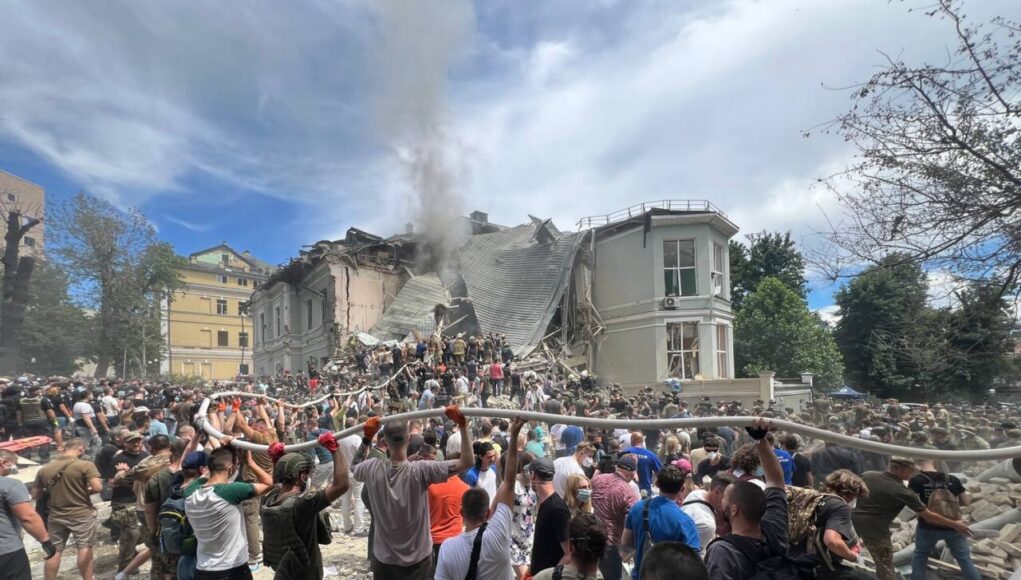
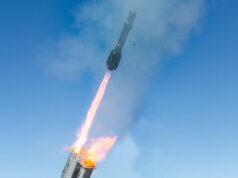
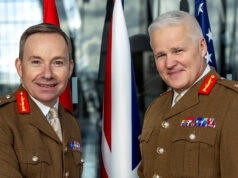



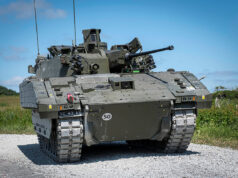
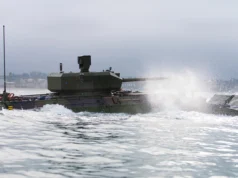

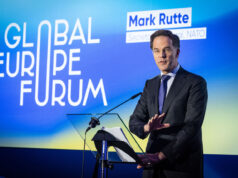

So much for a”allies” and trade deals…
Weird, I’ve just seen an article saying that India has paused buying Russian oil..
It’s the one thing trump got right, 25% tariffs on India for buying Russian oil with more to fall on China. Europes idea of sanctions is a terrible idea as we can’t sanction half the world but tariffs can work.
Sanctions and tariffs are not unrelated in Trumps threats to India. Not sure that Russian oil based tariffs on India will actually be introduced by Taco man now we have contrived talks with Putin which will very possibly kick everything down the road as usual worst of both Worlds to me, Trump threatens India, adds high trade related tariffs so driving them deeper into Russian hands and even rapprochement with China but threatens secondary tariffs on oil which likely won’t happen if tacoman gets what he personally wants ie exposure with Putin who will likely tie him in knots as usual. We should all have got tougher on secondary tariffs or sanctions (call it what you like) on Countries dodging sanctions on Russian oil. Then you could at least presented it as some sort of moral and logical high ground with clear solutions to their removal. Now the blatant anti Indian US trade tactics (whatever you think of the merits) without any reference to Indian/Russian relations has just driven them further into the enemy camp when they had seemed to be easing away from them due to Russian/Chinese hegemony. Now they will simply see the US as historically they did as a viper to be avoided. It’s why foreign policy led by a mallet to the head at best only has short term benefits as pretty much true if all US foreign relations now. It will be a long time, if ever that the US will be trusted again whatever taking the knee or kissing the ring looks like short term. Sadly that is all Trump is interested in to make him look like Napoleon, establishing mutually compatible relations sadly an irrelevance to him, threat and compliance over mutual benefit.
Or he doesn’t introduce higher tariffs and they carry on buying cheap oil as they currently are , and have been since the start of the Russian invasion.
I know there have been UK ‘trade deals’ but it could be reasonably argued these were to the detriment of UK taxes and merely enabled Starmer to proclaim a deal that had already been years in the making.
I’m under no illusions that Modi will always look after India first- they have historically been in the Russia camp, have been, and will continue to be firmly ensconced , in the Russian sphere of influence and will continue to exploit that where cheap Russia oil is concerned.
If you think they will become more Westernised and/or Western centric due to trade I think you are mistaken, in the same way as Cameron was with his Red Carpet approach to China.
I suppose the only thing we do know is they aren’t in any hurry to be friends with China- well hopefully not anyway.
India does what it thinks is best for lndia. Why should they really fit in with western thinking? One problem in a post colonial world, as France has found out in Africa, the world, particularly the former colonised, do not really care about Europe. Former colonisers seem reluctant to accept facts.
Being a realist is hard for many, including many westerners who dine out on former “glories”. The world changes, best adapt and accept.
And no, l am no “progressive lefty”, I just accept reality. What may seem wrong to some, makes complete sense to others.
Yep Africa is soooo much smoother now than a century ago. The continent can feed themselves, there are no jawa uprisings left right and centre. Population of s under control and inflation near zero.
Africa is still largely tribal in outlook, over 50% of all Africans still believe in witchcraft. That’s fine. Your Eurocentric view is quaint.
I do agree John we have to be realistic like it or not. We as Europeans don’t really care that much when there are horrible things going on in African Countries unless it directly effects us as with Uganda or Zimbabwe back in the day. So we can’t as angry as it may make us from our prospective, when these Countries shown similar disregard for European wars. However we also have to dim down our own historical guilt and accept that as these Countries and people are potentially hostile treat relationships on a realistic and transactional basis that has our own interests at heart but benefits both. Sounds a bit Trumpian in a way and the starting point might even overlap there but where he has taken it deliberately to damage others for personal or US benefit alone is anathema to being realistic but sensible mutually beneficial transactions between Countries, there has to be plenty of carrot to any stick if one has to go there, but free carrots to make up for past sins doesn’t lead to the required mutual respect.
Thank you for that very considered response. I guess after time in Africa then back to the UK I saw the hypocrisy of governments particularly. Especially one TB Liar, along with Cameron. People do not link those activities with our current immigration crisis. I accept your carrot point.
I am a long time admirer of Dr Ron Paul and his none intervention policy, sadly not listened to. The main problems I feel stem from corporate/profit motives, of which lobbied politicians are the main culprits. And of course the MIC who Ike clearly warned about so long ago.
The proxy wars going on are a repeat of the post 45 attitude to prevent the Domino Effect. A declining west is now in awe of an eastern giant. Still, not much will change I suppose, it appears mankind is in a doom loop and peaceful coexistence a pipe dream.
Best wishes
Glyn, when I served on a tour in Sierra Leone, every one of the older Local Nationals I met who remembered British rule wanted it back again!
India would counter that the USA and Europe are guilty of double standards here. Three and a half years after Russia invaded, they are still importing Russian products. Europe happily buys billions of dollars worth of natural gas, oil and fertilizer. Similarly, the USA imports billions of dollars worth of uranium, palladium and other raw materials.
Good point and very valid.
Indeed the value of goods flowing into Europe from Russia one way or another and supports their war effort far out-ways the value of support and weaponry we have sent to Ukraine. Morality is not a constant and thus relations between nations can have a strange historical flow. The present Russian Chinese relationship is full of that love/hate mix with the ‘love’ being present self serving necessity (as they see it, other choices for alliance were available) while the underlying hate is far, far deeper in reality.
Not surprising that India under Modi leans towards Putin’s Russia. There is a natural political affinity. They both subscribe to a political ideology of religious nationalism. Modi believes that a combination of race, geography and Hinduism define Indian identity in the same way that Putin views Slavic genes, geography and Russian Orthodoxy as the defining elements of Russian identity. Being Muslim or Christian in India is not a healthy lifestyle choice. Similarly, the root cause of the conflict in Ukraine is that the Ukrainian Orthodox church split from Moscow. Got to remember though that people in glass houses shouldn’t throw stones; Northern Ireland is still ‘work in progress’. As my grandmother used to say, blood is thicker than water.
India is a dangerous adversary. They are a super power in waiting, sitting, lurking watching which way the wind blows before setting sail. If Starmer thinks they are our ‘friend” then that is clearly why he thinks Trump is his friend! Put quite simply they are never going to be our friends just convenient mates. Time we stood up for ourselves a bit.
India does what they think is best for them.
And why not.
Which was why that F35 there sat uneasy with me.
They are not allies.
Hi Daniele,
‘Allies’ is an interesting word. How often have we been allies with countries only for them to become ‘enemies’ later? Countries have interests not friends (or allies?), at least that is an oft stated view. One I tend to agree with as a general rule, but I believe it is more complex than that as well.
One way in which that statement is flawed is that it ignores cultural ties to some extent. So when we think about the Five Eyes nations the inter nation relationships are not just about high level political and diplomatic contacts but families and ‘working’ relationships at every level of state and commercial activity. The recent images of Trump / Starmer and Lammy / Vance apparently getting on like life long friends is telling. I have often wondered how Republicans and Labour can apparently get on so well. Blair and Bush were another example from the recent past. I read recently that Republicans tend to look more favourably on the UK than Democrats, not sure why that would be..?
I suppose the point I am getting to is that Alliances are not easily understood. Interests are obviously a key part of the equation in that they are the transactional part of the relationship. Examples of this are Fynlingdales and the Five Eyes agreement and rely on good relationships and are definitely transactional in nature, but trust is also important.
Culture plays a role as it creates a common basis for relationships to develop, influences common world views and, in the case of the Five Eyes nations, is based on an overlapping and shared history, if not always harmonious…
Personnel relationships I think are the most important in many ways. The obvious relationships are the ones in the press and mentioned above but they go way deeper. Military, Law and Order, Commercial, etc all play a role and they in turn help to meet the transactional goals that in turn further the national interests. As such, even if our leaderships fall out over different issue they can still find away to do business.
As such we have good and on occasion ‘special’ relationships, even with the French 🙂
So long as interests are sufficiently aligned, cultural outlooks sufficiently supportive of good relationships there is room for alliances to be built and sustained.
Your basic point that India is not an Ally is a fair assessment, but I do not think that makes them enemies either. For clarity, I am not implying that you were suggesting they are enemies, it is simply that India and the developing South have sufficiently different priorities to the developed nations that true alliances would be difficult to attain and maintain. My feeling is that finding common ground to develop deals such as the recent trade deal between the UK and India is a good step forward. If nothing else it has the potential to disrupt India’s drift into Russia’s sphere of influence by offering an alternative.
The west has been very slow to respond to China and Russia’s advances toward to the developing south and needs to recognise that the colonial past still casts a long shadow over relationships. So perhaps alliances in the western WW2 mold are the wrong way to frame things. A more limited and equitable set of relationships might be the way to go, ones that help to reset the cultural and historical relationships between the old colonial powers and the developing south.
Then may be alliances might be possible.
Cheers CR